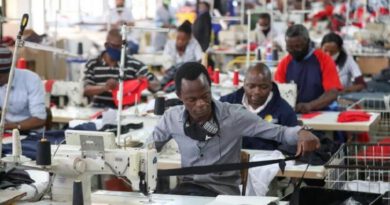South Africa was inching up the economic freedom index …
South Africa has been ranked 99 of 178 countries in the 2021 Economic Freedom Index report released by American-based think tank The Heritage Foundation – up from 106 in 2020 – yet remains in the ‘mostly unfree’ category for the third time in a row.
With an improved economic freedom score of 59.7 (out of 100) compared with last year, South Africa slightly missed making it to the ‘moderately free’ category by 0.3 of a point.
“The upward movement of South Africa in terms of the freedom index is good news,” says Bonang Mohale, president of Business Unity South Africa (Busa), who adds this is especially true given the woefully slow vaccine rollout amid the pandemic.
Still below investment grade
“Moody’s rating agency had already downgraded us below investment grade. As we speak, we are three notches below investment grade.
“We are [also] just putting our arms around the nine wasted years of state capture,” says Mohale.
The report covers the second half of 2019 and first half of 2020 and measures economic freedom across four broad pillars:
- Rule of law: property rights, government integrity, judicial effectiveness;
- Government size: government spending, tax burden, fiscal health;
- Regulatory efficiency: business freedom, labour freedom, monetary freedom; and
- Open markets: trade freedom, investment freedom and financial freedom.
According to the report, South Africa’s new ranking position is mainly attributed to the solid improvement in judicial effectiveness which is at 57.1 points (2020: 38). Although the country’s judicial processes are deemed reliable, courts are understaffed and underfunded.
To climb up the economic freedom ladder even further, the government will have to “prioritise improvements in the judicial system and confront persistent labour market rigidities that trap more than one-third of workers in the informal economy”, the report suggests.
Mohale rates the improvement in the ranking as “good news” nonetheless, considering that almost two weeks ago Statistics South Africa released figures showing that the country has seen a 1.2% growth in GDP.
“This being the second successful quarter means that we are technically out of a recession [for] now. But unfortunately, 1.2% GDP growth is not even touching sides to address our stubbornly high levels of unemployment, which then lead to increasing levels of poverty and increasing levels of inequality.
“But what should concern most of us is the fact that this positive GDP growth and this upward movement in our freedom index does not take into account the two weeks in July of rampant looting and the Transnet cyberattack, which will most certainly reverse these gains in the third quarter,” says Mohale.
Read: SA unemployment is far worse than a bloodbath
South Africa ranks ninth out of 47 countries in the sub-Saharan Africa region, a score above the regional average. However, Mauritius takes first position in the regional ranking, with an overall score of 77. This places it in the ‘mostly free’ category at a global position of 13.
Singapore is occupying first position for the second time in a row, making its economy the freest in the 2021 index.
New Zealand has replaced Hong Kong in second place, with Australia, Switzerland and Ireland rounding off the top five list of economically free countries.
Countries such as Iraq and Libya were not ranked due to their continued lack of data.
Palesa Mofokeng is a Moneyweb intern.
Source: moneyweb.co.za



